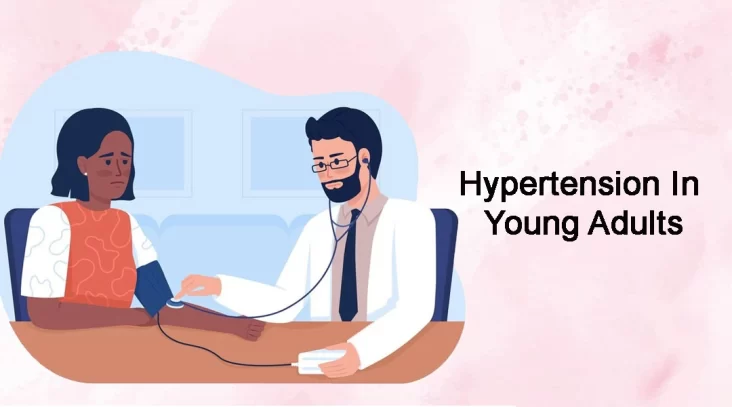Hypertension in Young Adults: Understanding the Rising Health Concern
Hypertension, or high blood pressure, is increasingly being diagnosed in young adults, signalling a shift from its traditional association with older populations. This trend is alarming due to the long-term health implications and the significant lifestyle changes young adults must adopt to manage the condition. Understanding the causes, risk factors, consequences, and prevention strategies is essential to address this growing health issue effectively.
Several factors contribute to the rising incidence of hypertension among young adults. A sedentary lifestyle is a major contributor. With the proliferation of digital technology, young adults are spending more time in front of screens and less time engaging in physical activities. This lack of exercise is a significant risk factor for hypertension. Poor dietary habits also play a crucial role. Diets high in sodium, fats, and sugars are common among young adults. The prevalence of fast food and processed snacks exacerbates the issue, leading to weight gain and elevated blood pressure. Obesity, closely linked to hypertension, is another critical concern. The increasing rates of obesity among young adults add strain to the cardiovascular system, significantly increasing the risk of developing high blood pressure.
Stress is another significant factor. Young adults today face substantial stress from academic, professional, and social pressures. Chronic stress can lead to sustained high blood pressure levels. Additionally, alcohol and tobacco use are prevalent among this demographic, despite numerous awareness campaigns highlighting their risks. Both smoking and excessive alcohol consumption are significant risk factors for hypertension. Genetic factors also play a role; a family history of hypertension increases the likelihood of developing the condition. Young adults with hypertensive relatives need to be particularly vigilant about their blood pressure.
If not properly managed, hypertension in young adults can lead to severe health problems.
Cardiovascular disease is a major risk, as high blood pressure is a leading cause of heart attacks, strokes, and heart failure. Early onset hypertension accelerates cardiovascular damage, increasing the risk of these serious conditions. Kidney damage is another potential consequence. Chronic hypertension can damage the blood vessels in the kidneys, leading to reduced kidney function or kidney failure. Vision problems can also arise, as hypertension can damage the blood vessels in the eyes, potentially causing conditions like retinopathy, which can impair vision. There is also a link between hypertension and cognitive decline, with an increased risk of dementia later in life. Moreover, hypertension often coexists with other metabolic disorders such as diabetes and hyperlipidemia, further increasing the risk of severe health outcomes.
Preventing and managing hypertension in young adults involves a multifaceted approach, emphasizing lifestyle modifications and medical interventions when necessary. Adopting a balanced diet rich in fruits, vegetables, whole grains, and lean proteins while reducing salt, sugar, and unhealthy fats is essential. The DASH (Dietary Approaches to Stop Hypertension) diet is particularly effective. Engaging in regular physical activity, with at least 150 minutes of moderate-intensity exercise per week, can significantly reduce blood pressure. Activities like walking, jogging, cycling, and swimming are beneficial. Weight management through diet and exercise is crucial, as even modest weight loss can significantly impact blood pressure levels. Stress reduction practices such as yoga, meditation, and mindfulness can help manage blood pressure. Adequate sleep and relaxation are also important. Quitting smoking and moderating alcohol consumption are critical steps in managing hypertension.
Regular monitoring of blood pressure is essential, especially for young adults with risk factors. Early detection and management are key to preventing complications. For those diagnosed with hypertension, adhering to prescribed medications and maintaining regular consultations with healthcare providers ensure proper management and adjustment of treatment plans as needed.
Experts at Sujata Birla Hospital suggest that the rising incidence of hypertension in young adults is a significant public health concern. Understanding the causes and consequences of this condition is crucial for prevention and management. Public health initiatives and education campaigns targeting lifestyle modifications can play a crucial role in curbing this trend. A collective effort from individuals, healthcare providers, and policymakers is essential to address and mitigate the impact of hypertension in the younger population.

